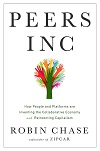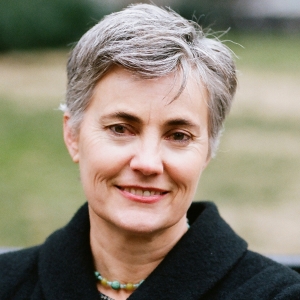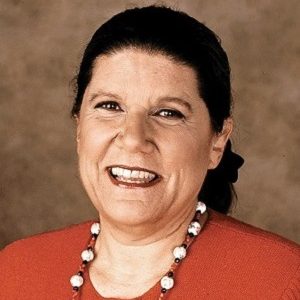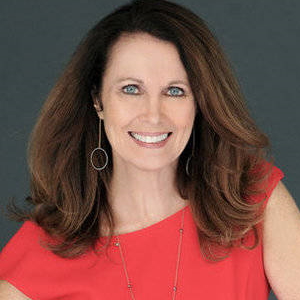Robin Chase Speaker Biography
Co-Founder and Former CEO of Buzzcar, Zipcar, and GoLocco
Robin Chase is a transportation entrepreneur. She is co-founder and former CEO of Zipcar, the largest carsharing company in the world; Buzzcar, a peer to peer carsharing service in France (now merged with Drivy); and GoLoco, an online ridesharing community. She is also co-founder and Executive Chairman of Veniam, a vehicle communications company building the networking fabric for the Internet of Moving Things.
Book
Robin Chase is also author of the newly released book Peers Inc: How People and Platforms are Inventing the Collaborative Economy and Reinventing Capitalism.
Affiliations
She is on the Boards of Veniam, the World Resources Institute, and Tucows. She also served on the board of the Massachusetts Department of Transportation, the National Advisory Council for Innovation & Entrepreneurship for the US Department of Commerce, the Intelligent Transportations Systems Program Advisory Committee for the US Department of Transportation, the OECD’s International Transport Forum Advisory Board, the Massachusetts Governor’s Transportation Transition Working Group, and Boston Mayor’s Wireless Task Force.
Media
Robin lectures widely, has been frequently featured in the major media, and has received many awards in the areas of innovation, design, and environment, including Time 100 Most Influential People, Fast Company Fast 50 Innovators, and BusinessWeek Top 10 Designers.
Education
Robin graduated from Wellesley College and MIT’s Sloan School of Management, was a Harvard University Loeb Fellow, and received an honorary Doctorate of Design from the Illinois Institute of Technology.
Robin Chase Speaking Topics
People-Powered Innovation
Innovation is a country's lifeblood. Imagine if our lives stayed exactly the same! On the other hand, people hate change because they can't quite see the future; it can be unnerving. And big companies and governments (who occasionally respond to their constituents who like the status quo) are not that easy to change. By enabling innovation - 1) creating a culture of innovation and entrepreneurship; 2) reducing barriers and costs to experimentation; and 3) reducing the costs of the innovation inputs - government can make it possible for people to do the changing themselves. In this talk, Robin Chase - founder of car-sharing service Zipcar - discusses people-powered innovation.
The Future of Transportation in the 21st Century
The future of transportation is urban and multi-modal. Picture cities with one-tenth the cars! We'll choose and move seamlessly using different types of transportation for each and every trip, with an explosion of both public and private offerings. And not too far into the future, autonomous vehicles will change everything; they could be the ultimate in public transportation and wreak havoc with employment.
Collaborative Economy
Sharing is good! An unlikely partnership is creating the smartest, biggest and strongest companies. People working on platforms mean efficiently used resources, co-investment from others, low-cost innovation and very fast learning.
Sharing: A Simple Approach for Maximizing ROI
Zipcar succeeds because it created a platform for the sharing of excess capacity (idle car hours), which reduced costs for everyone who uses the asset. By taking a closer look at the anatomy of sharing (personal, institutional, web 2.0) and dimensions of the assets (physical, digitial, temporal, synergistic, collaborative) we can turn perceptions of scarcity (and cost centers) into a reality of abundance (and profit, innovation centers).
Beyond Web 2.0 (Collaborative Production): Collaborative Consumption, Financing & Infrastructure
The online web 2.0 phenomenon of collaborative production is much loved because of its speed and scalability. Zipcar is an example of collaborative consumption, financing, and infrastructure (a distributed nationwide fleet in existence because of the aggregated demands of its members). Reconceptualizing what it means to collaborate offers an intriguing new way to think about infrastructure investment. What does it mean to create platforms to enable participation?
More Meadows
The strength and resilience of meadows are derived from their diversity, ability to evolve, and collaboration within the system. In highly dynamic environments characterized by uncertainty about the future, we need to reduce risk and increase the likelihood of survival. The key is to ensure that institutions (and governments) have laid the foundations that foster experimentation, permit learning, and ultimately evolution of successful new businesses that take advantage of unexploited openings (where there is excess capacity) in the ecosystem. In economics, we call these randomized field experiments. Creating more meadows is an important risk reduction and innovation strategy.
Robin Chase Books

Peers Inc: How People and Platforms Are Inventing the Collaborative Economy and Reinventing Capitalism
Purchase BookRobin Chase Videos
Robin Chase Articles
Robin Chase Speaker Testimonials
“Things went absolutely beautifully. [She was] perfect and the audience loved her.”
- | US Tour Operators Association
“Thank you again for your fantastic keynote address. So many guests came to us to share how inspired they were by the Peers Inc. concept, especially the (many!) entrepreneurs in the audience.”
- Sloan Women in Management | Elena Mendez Escobar
“She was spectacular!”
- Worcester Economic Club | Jim Paugh, President





